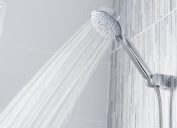If You're Over 65, Not Doing This in the Shower Is Causing Hair Loss
There's one step in your haircare routine that's more important than you think.
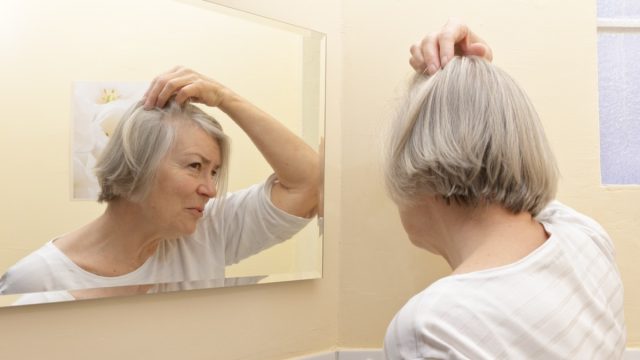
Turning 65 can spark many changes in the body. Your skin may feel drier, your joints may feel creakier, and your memory may feel foggier. However, there's one body change you might not have expected: hair loss. There are a variety of reasons why hair loss can affect people, including hormonal imbalances, nutrition issues, hereditary traits, endocrine disorders, and thyroid disorders. In addition to those biological causes, your at-home haircare habits can also prompt thinning strands. Read on to learn why not doing this one thing in the shower is causing hair loss if you're over 65.
RELATED: If Your Hair Is Thinning, This Food Could Be to Blame, Study Says.
If you're over 65, skipping conditioner can cause hair loss.
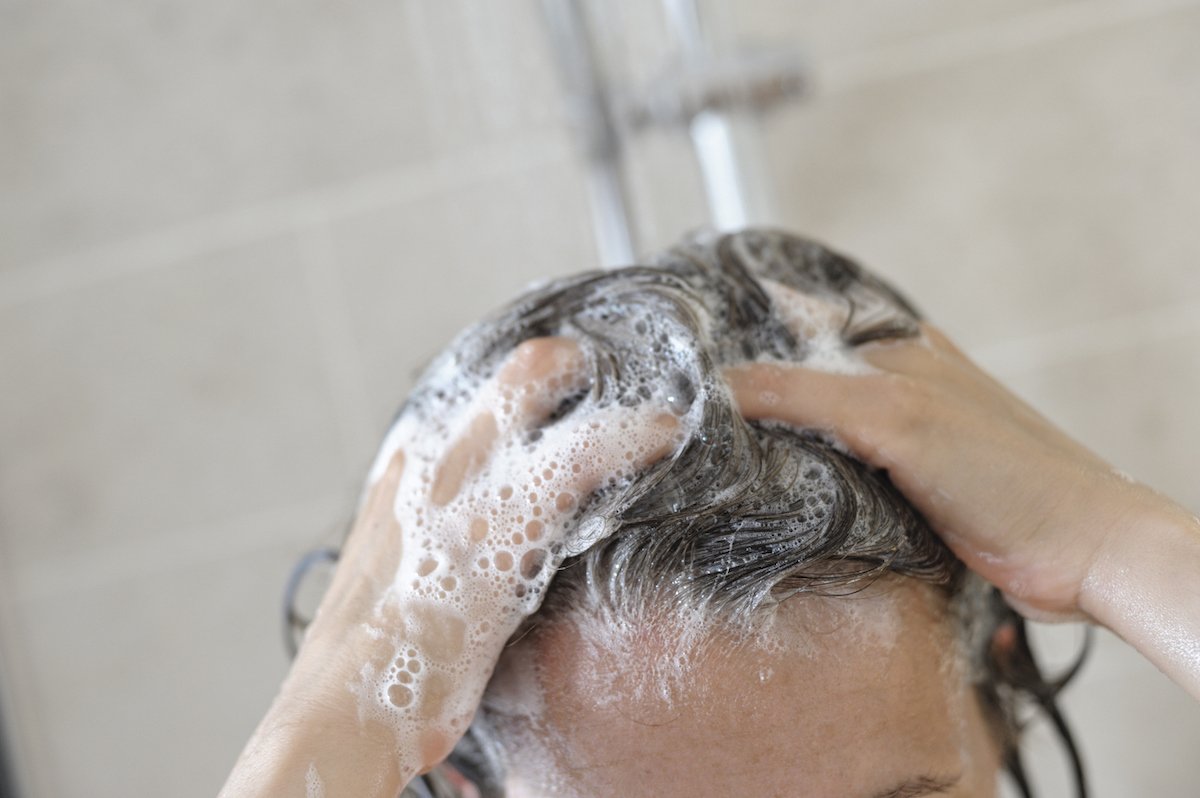
Sometimes, conditioning your hair can feel like the least important step in your hair care routine (what's it actually doing in there, anyway?). However, it's key to maintaining a healthy mane—and preventing hair loss. "Conditioner protects your hair from heat and environmental damage," says Andrea Claire, a licensed hairstylist. "Without it, your hair can become dry, lackluster, and break."
Simply coating your strands in conditioner during shower time isn't enough. To condition properly, comb a quarter-sized amount of product evenly through your hair. Let it sit for a minute (or the time recommended on the label) and rinse. Claire suggests asking your hairstylist to recommend a conditioner, as each person's hair and scalp need something different.
Over-styling after a shower is also a problem.
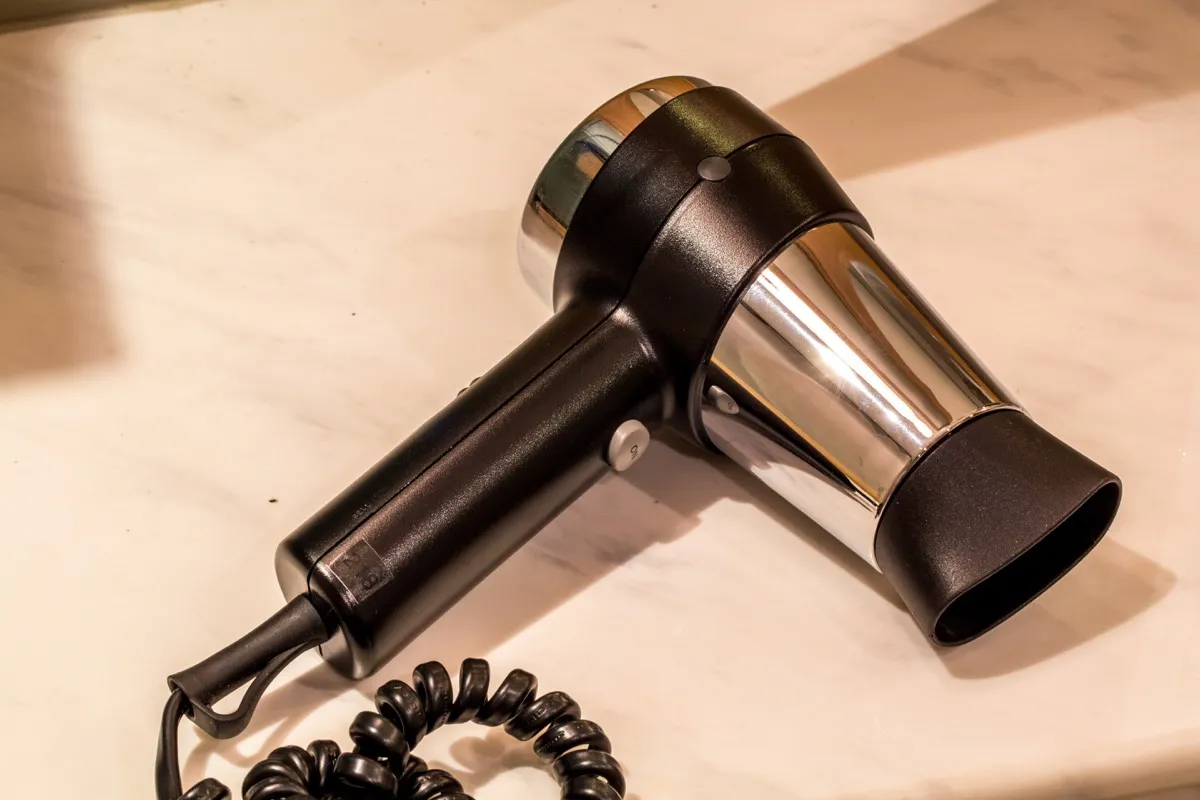
While not doing enough to care for your hair can take a toll on your strands, so can doing too much. "One of the most common mistakes that can cause hair loss is over-styling," says Laura Roncagli, a professional hairstylist and co-founder of MyBeautik.com. "Too much heat, too much manipulation, and using the wrong styling products can all lead to hair loss."
Fortunately, the solution here is easy. Roncagli recommends giving your hair a rest most days and limiting your use of hot tools to once or twice a week. "If you must use styling products, make sure they are light and non-greasy," she says.
RELATED: For more hair care advice delivered straight to your inbox, sign up for our daily newsletter.
Limit those bathroom dye jobs.
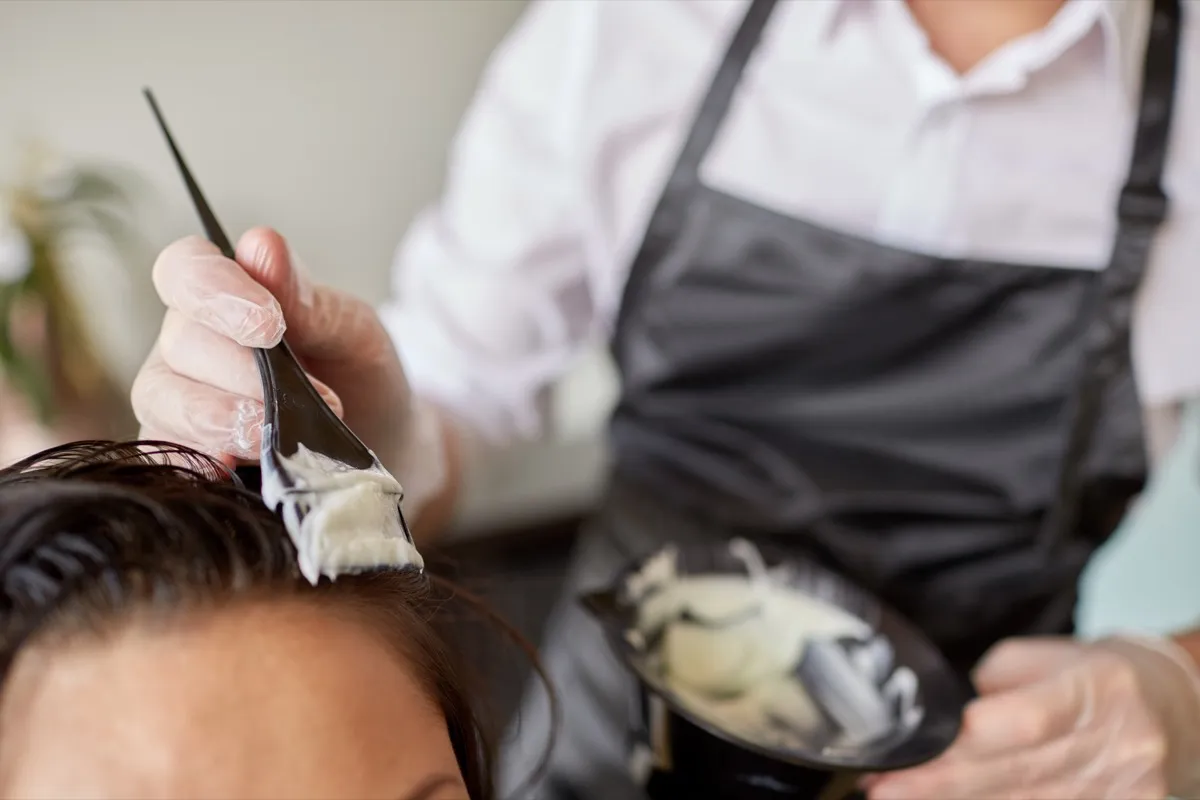
Chemical hair treatments—including dye, bleach, relaxers, and perms—often lead to hair loss, especially as the hair becomes drier and more brittle with age. "Each chemical service a hairstylist does, regardless of how great their products are, is still chemical," says Claire. "Sticking with one hairstylist who knows your hair and what it can do is better for your hair health."
Claire notes that hair dye is one of the most common chemical treatments—and the one that can do the most damage. "Some people DIY with box dyes without understanding the science behind it all," she says. "I also see some women seeking immediate gratification versus having the patience to go through transitional colors."
Your best course of action? Find a hairstylist you love and work with them over the long term to achieve your hair goals.
Create a healthy at-home hair routine.
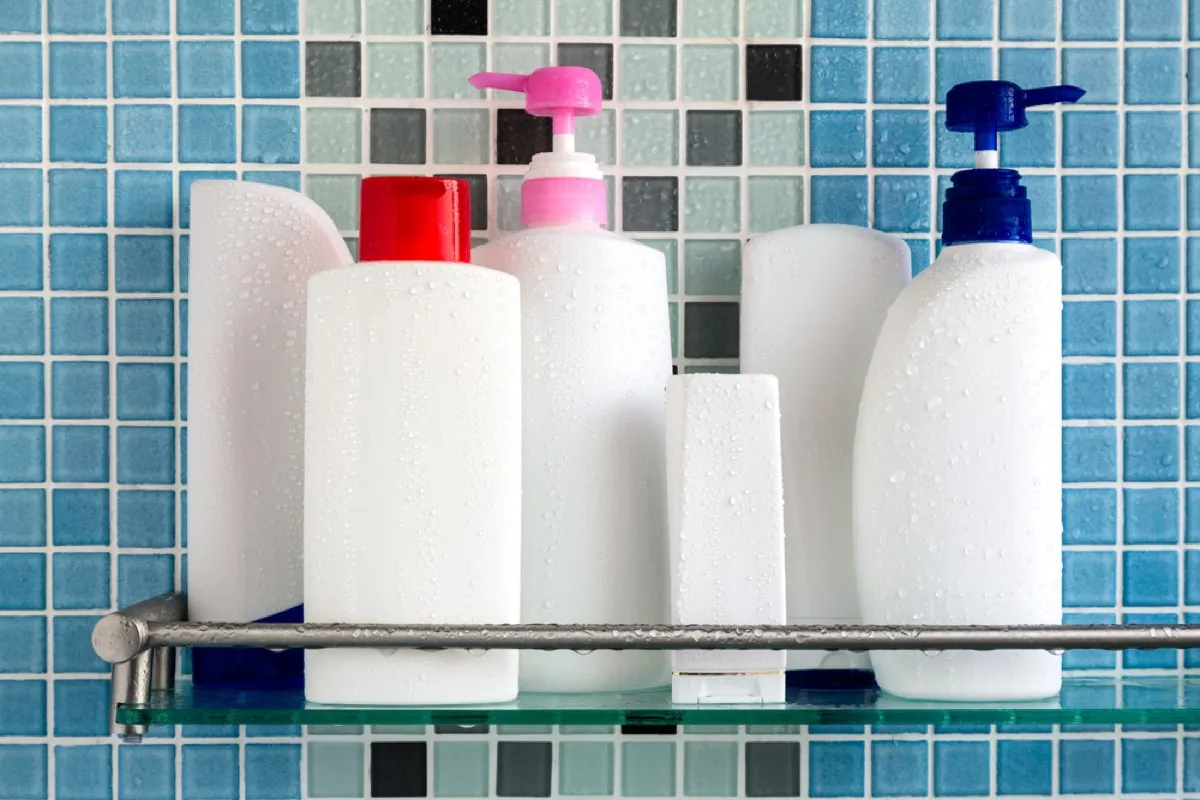
The best part of re-imagining your haircare routine is purchasing new products. In order to put your best hair forward after age 65, look for items that increase shine, elasticity, and volume, and prevent damage and breakage. At a minimum, you'll want to invest in a moisture-boosting shampoo, conditioner, and perhaps even a hair mask for that precious shower time.
Of course, if your hair loss issue persists, you should bring it up with your primary care practitioner. "I always tell clients that if they have concerns to see their GP or dermatologist," says Claire. Once you rule out a medical condition, you can chat with your stylist to create a hair routine that works for you and your tresses.
RELATED: Doing This in the Shower Is Making You Lose Your Hair, Experts Warn.
